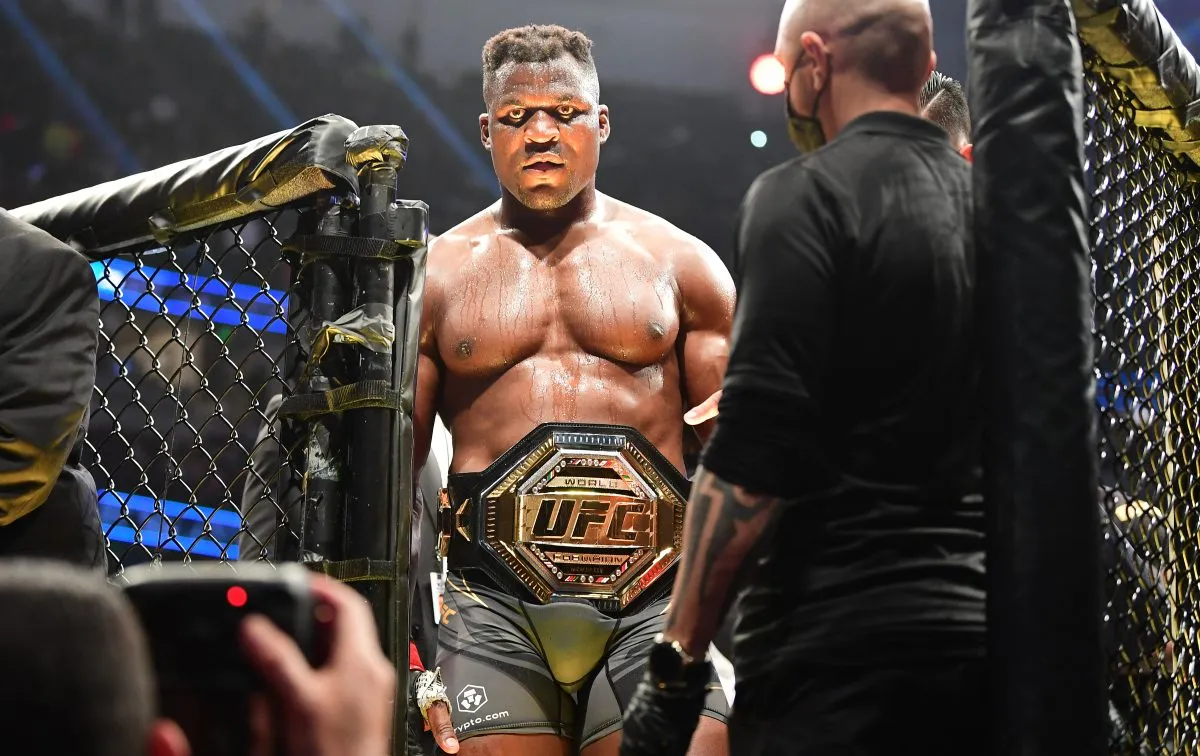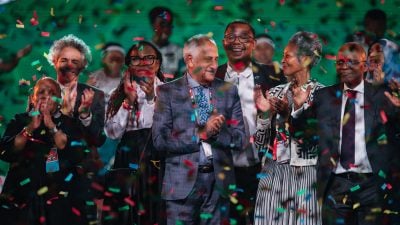Mixed Martial Arts (MMA) is one of the fastest-growing sports in the world, with an estimated 550 million global fans captivated by its thrilling mix of discipline, strategy, and sheer athleticism – but it has had scant presence in Africa, until now. The Professional Fighters League (PFL) will launch PFL Africa in 2025, a groundbreaking initiative designed to elevate the continent’s fighters to the global stage.
With the regional competition set to begin in May, PFL Africa promises to bring the league’s signature format of regular seasons, playoffs, and championships to African soil, creating new opportunities for athletes and fans alike.
PFL Africa will become part of the league’s expanding network of regional tournaments, alongside PFL Europe and PFL Middle East and North Africa (MENA). There are plans to establish leagues in Latin America and Asia within the next two years.
The inaugural PFL Africa season will feature four weight classes, each comprising eight African fighters, supported by alternates (or reserves) and development athletes.
“Altogether, PFL Africa will have 60 fighters under contract including those on the roster, competing both in the season and in development programmes,” says Peter Murray, CEO of the PFL. “We’re creating and establishing an African entity that’s designed to become one of Africa’s great leagues. It will be deeply embedded across the continent and led by [Cameroonian MMA star] Francis Ngannou as chairman.”
While the potential is enormous, Africa’s diversity presents logistical and cultural challenges. With 54 countries, over 2,000 languages, and varying levels of infrastructure, delivering a unified MMA experience will demand adaptability and local insight.
To support its ambitious plans, PFL has partnered with Helios Sports and Entertainment Group (HSEG), a subsidiary of Helios Investment Partners, which says it brings deep regional expertise and financial backing to the project.
PFL will leverage HSEG’s portfolio, which includes investments in NBA Africa and the Basketball Africa League (BAL), to broaden its reach. The league’s events will be broadcast on linear, digital, and mobile platforms, in a bid to secure widespread accessibility for fans across the continent.
“African talent has had disproportionate success on the global MMA stage, yet there’s a scarcity of events despite significant demand,” said Tope Lawani, co-founder and managing partner of Helios, at the league’s press conference launch in Lagos in July. “This creates a huge opportunity for growth as young Africans consume more digital content on their devices.”
The announcement sparked considerable attention. According to Nelson Reids, the PFL’s African marketing partner, the campaign generated over $9m in advertising value alone.
Ngannou’s story
Francis Ngannou’s appointment as chairman is a powerful symbol of the league’s vision. Growing up in the serene village of Batié in Cameroon, his journey from humble beginnings, working as a child in gold mines, to global superstardom is nothing short of extraordinary.
Inspired by his childhood hero and boxing legend Mike Tyson, Ngannou left Cameroon at 26. His odyssey was as harrowing as it was extraordinary. He traversed the Algerian desert, enduring blistering heat by day and biting cold at night, surviving on sips of contaminated water shared with scavenging animals. Along the way, he evaded both bandits and the authorities, and was often forced to hide in unforgiving terrain.
Reaching Morocco, he faced yet another gauntlet: repeated failed attempts to cross into Spanish territory, either by land or by sea. It wasn’t until his seventh attempt – a year to the day after leaving Cameroon – that he succeeded, arriving at the Spanish exclave of Melilla in North Africa.
Even then, his journey was far from over. Ngannou spent nearly two months in a Spanish detention centre before being released. Undeterred, he eventually made his way to Paris, where he found shelter in a covered parking garage, a stark contrast to the life he dreamed of.
Penniless, friendless, and struggling to survive on the streets, Ngannou stumbled upon a boxing gym that became his refuge. Encouraged to try the city’s MMA Factory, he quickly demonstrated extraordinary potential. Within two years, Ngannou was signed by the Ultimate Fighting Championship (UFC) – an industry leader, valued at $11.3 billion according to Forbes – before his meteoric rise saw him claim the UFC’s heavyweight crown and become one of the sport’s most feared stars.
But his ambitions extended beyond titles. In 2023, frustrated by the limits of his UFC contract and eager to explore new horizons, he stunned the sports world by stepping into the boxing ring, earning $25m in total for two high-profile fights against Britain’s Tyson Fury and Anthony Joshua, before returning to MMA with the PFL in October, now gaining an equity stake in the company.
Now, as both the league’s star fighter and its chairman, Ngannou is determined to inspire a new generation. “Francis had to leave the continent, like so many athletes in boxing and other sports, to pursue his career,” says Murray. “Now, Francis gets to go back, to develop the next generation of great athletes, great fighters, and future regional and global MMA champions. And, critically, they won’t have to leave the continent to become professionals.”
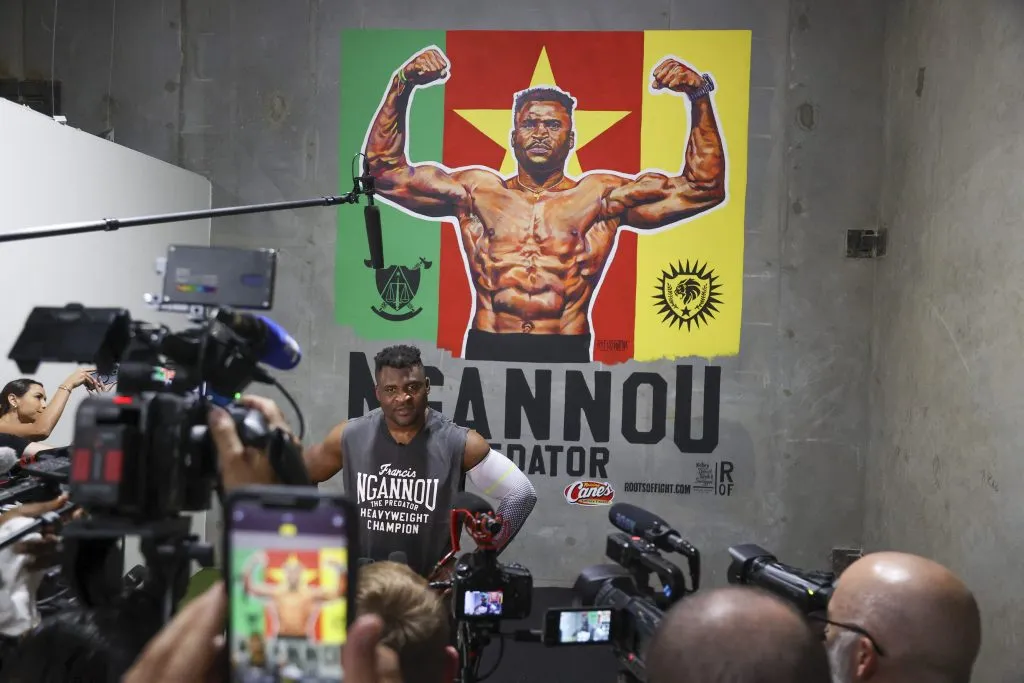
Young Africans eager for content
PFL Africa aims to capitalise on favourable demographics. Africa is the world’s youngest continent, with a median age of just 19.2 years, according to the United Nations. Urbanisation is accelerating, with over 45% of Africans—more than 670 million people – now living in cities. The African Development Bank reports that the middle class has tripled in size over the past three decades, surpassing 310 million individuals. This demographic shift is fuelling a surge in demand for high-quality entertainment, elite sport and training centres.
Last year, the martial arts studio and club market in the United States alone was valued at $9bn. Meanwhile, MMA’s expansion into Africa continues to gain momentum, with gyms springing up across major cities and reports suggesting the UFC may soon open a performance institute in South Africa.
“We see Africa as more than a market – it’s a global talent pipeline,” Murray tells African Business. “The combination of a young population, digital connectivity, and a passion for combat sports makes it the perfect fit for our expansion plans.”
Yet, bringing MMA to the continent isn’t as simple as building an octagon, booking fighters, and hoping people tune in. From navigating regulatory landscapes to finding venues that meet international standards, the logistics are daunting.
PFL Africa is taking a deliberate approach to distinguish itself from the UFC’s model, which often focuses on monetising fans who attend, or buy the right to watch, particular events. Instead, PFL says its sports season format fosters consistency, delivering near-weekly events that build a reliable connection with audiences. This regularity could transform MMA into a familiar and dependable fixture for African viewers, helping the league establish a foothold as the first global MMA organisation to commit fully to the continent.
The challenge lies in developing fighters capable of achieving the star power of figures like Francis Ngannou, while ensuring accessibility, with plans to sell some tickets for as little as $1 to widen the sport’s appeal.
Despite the mammoth task, South Africa already offers a glimpse of MMA’s potential on the continent. In 2024, SuperSport’s broadcasts of middleweight South African world champion Dricus Du Plessis’ UFC fights against Sean Strickland and Nigerian-born Israel Adesanya broke viewership records. The bout with Adesanya had over 528,767 unique viewers.
Nielsen Sports, an audience measurement firm, revealed that 28% of viewers re-watched the fight, as fans eagerly revisited the action and relived the intensity of strikes, takedowns, and submission holds that define the sport’s allure.
While PFL is banking on Africa’s deep-rooted love for combat sports, MMA still operates in the shadow of football, the continent’s undisputed king. However, the international successes of African champions such as Ngannou and du Plessis have elevated MMA’s profile. Their triumphs are igniting new interest across Africa, says Jabu Mtwa, a South African sports entrepreneur and co-host of the Africa Business of Sports podcast.
“For PFL Africa, I think it reflects broader trends in Africa’s evolving sports industry. The move is part of a wider shift toward the globalisation of sports organisations and the international development of sports leagues,” Mtwa explains. “In recent years, we’ve seen more US and European-based sports organisations establishing divisions in Africa and engaging with local diversity.”
SuperSport’s multi-language broadcasts in English, Afrikaans, and isiXhosa are enhancing accessibility and capturing attention, fuelling the growing appetite for combat sports among diverse audiences.
While the PFL aims to make MMA accessible, Mtwa says that economic realities could limit audience reach. Many African households prioritise essential expenditures, and even modest ticket prices or streaming subscriptions are out of reach for a significant proportion of the population.
Electrifying scenes
To overcome this, the PFL plans to cultivate multiple world champions and national icons, hoping to replicate the electrifying scenes witnessed in Batié and Yaoundé, Cameroon’s capital. In these communities, villages and cities alike come to a standstill as fans gather at home or crowd around televisions in local bars to watch their hero in action.
“We’re creating pathways for great athletes across Africa to become regional and, ultimately, global champions,” Murray says. PFL scouts are currently stationed across the continent, building relationships with regional MMA promotions and tapping into grassroots scenes, including Olympic disciplines.
South Africa’s Extreme Fighting Championship (EFC), established in 2009, has become a vital springboard for a new generation of African fighters. The promotion has attracted over 100 athletes from countries including Zimbabwe, Angola, Senegal, Nigeria, Côte d’Ivoire and the Democratic Republic of Congo, drawing millions of viewers across the continent. It also served as the launching pad for the career of du Plessis.
This network has nurtured emerging fighters poised to make their mark on the global stage, with other local promotions recently hosting bouts in cities as varied as Banjul, The Gambia, and Kigali, Rwanda.
At the heart of PFL’s initiative lies the league’s development programme. A select group of athletes are already training in the United States, honing their skills in elite gyms under the guidance of world-class coaches and seasoned competitors.
“Iron sharpens iron” is the mantra – pairing raw talent with top-tier resources creates future champions, says Murray. On the ground in Africa, the PFL is also organising training clinics in various countries, bringing international trainers and athletes to share their expertise and in-turn draw more fight fans to the sport.
“MMA’s appeal to African audiences is rooted in the continent’s strong tradition of combat sports,” says Mtwa. Wrestling has long been a cornerstone of African sports culture, with regional styles reflecting diverse traditions. In Senegal, wrestling is the number one national sport, even surpassing the popularity of football, despite the country’s recent success in the Africa Cup of Nations.
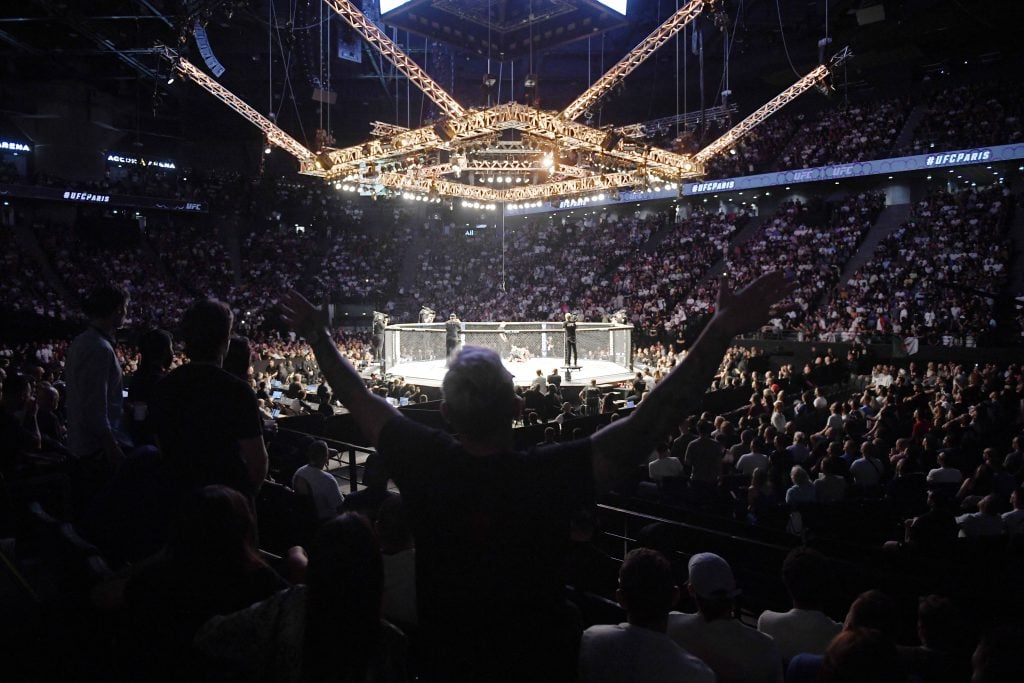
The dambe tradition
This connection extends to striking-based styles like dambe, an ancient combat sport from northern Nigeria, which combines elements of grappling and striking. These traditional fighting styles form the foundations of MMA, making the sport both culturally familiar and thrilling for African audiences accustomed to intense, skill-based contests.
Mtwa says that dambe’s African Warriors Fighting Championship (AWFC) has gained recognition through strategic backing from sports and tech investor Silverbacks Holdings, and sponsorship from crypto betting platform Stake.com. This support has amplified awareness of African martial arts, while enhancing the commercial viability of combat sports across the continent.
Other fighters such as Mouhamed Tafsir Ba and Oumar “Reug Reug” Kane (pictured on front cover) combine MMA with kickboxing.
The AWFC has carved out a substantial presence, reeling in 500 million views across various platforms and attracting 600,000 social media followers. Its success has also caught the attention of leading media outlets, further cementing its position as a trailblazer in African sports.
PFL Africa’s blend of rich combat traditions, rising commercial interest and expanding viewership could offer fertile ground for MMA to thrive. Sponsorships and brand partnerships are pivotal, with industries like telecommunications, beverages, tech, and consumer goods eager to connect with the continent’s growing sports fan base. “A strong platform like PFL Africa allows brands to connect with an engaged and emotionally invested audience,” says Mtwa.
Yet Africa’s sports landscape has seen its share of bold ambitions from international organisations – many of which crumbled when financial expectations fell short. Leading football academies, once brimming with potential, faded into obscurity under the weight of corruption and mismanagement. For the PFL, success will not be measured by the glitz of opening events alone but by its ability to carve out a lasting, meaningful presence that withstands the test of time and builds trust across the continent.
“For 2025, we’ll stage 35 PFL Africa events under our signature format in four markets,” says Murray. “Over time, we see that expanding to as many as six markets.”
Abidjan, Cape Town, Dakar, Kigali, and Lagos lead the race to host May’s inaugural event, with the final decision expected in January. As the anticipation builds, Murray acknowledges the formidable challenges ahead. Many regions lack facilities for large-scale premier events, and the logistical complexities of organising tournaments across diverse countries are formidable. Transporting equipment, ensuring athlete and fan safety, and coordinating events in varied locations present considerable operational challenges.
DAZN’s broadcasting boost
Yet the PFL is betting that a world-class broadcast product will unlock multiple revenue streams, with distribution at its core. Partnerships with Canal+, SuperSport, and DAZN ensure the league’s reach spans linear television, digital streaming, and mobile platforms.
To widen accessibility, initiatives like “People’s Fights” will make key events free to view, offering fans from diverse economic backgrounds a chance to engage with the sport.
Central to this effort are multi-year broadcast deals with heavyweight broadcasters SuperSport and Canal+, which deliver PFL programming to millions of households across Sub-Saharan Africa. SuperSport caters to English-speaking markets, while Canal+ provides French-language PFL coverage to nearly eight million homes, as well as audiences in Myanmar and Haiti.
These agreements bring marquee events, such as PFL Super Fights, the Bellator Champions Series – and now PFL Africa – to fans across both linear and digital platforms.
Adding to this foundation is a partnership with DAZN, a global powerhouse in combat sports streaming. “We’ve established ourselves as the foremost combat sports platform globally,” says Joe Pickering, DAZN’s rights director, referencing DAZN’s collaborations with boxing’s Matchroom and Golden Boy promoters. “Principally, we’re established as market leader with boxing, where we broadcast almost every major boxing match from promotions like Matchroom and Riyadh Season.” In recent years, DAZN has expanded its footprint across multiple markets and combat sports, including MMA, and will beam PFL Africa into millions of homes in North America, Asia, and Europe. “What we saw with PFL was the opportunity to be part of something growing very well,” Pickering explains. “We’re trying to do with PFL what we’ve done with boxing: help elevate it to the next level by providing a global platform for their events and pay-per-view (PPV) fights.”
DAZN’s collaboration with PFL includes distributing its PPV events in Africa, alongside coverage of regular season fights that crown six $1m champions annually. “Next year, we’re very excited about expanding this partnership with the launch of PFL Africa,” Pickering tells African Business. “We aim to, much like PFL Europe, provide a global platform for the best up-and-coming African MMA talent. There’s an enormous amount of exciting talent coming into the promotion next year, and we’re thrilled to be part of it.”
From gamification to integrating influencers into programming, the platform has redefined how audiences interact with combat sports content. “We’ve invested heavily in creating a product that’s truly fit for purpose in the 2020s – and, of course, we aim for it to remain relevant into the 2030s as well,” says Pickering. To achieve this, DAZN is blending technology with strategic partnerships, ensuring accessibility and engagement across diverse markets. Its focus on seamless payment systems and localised pricing models tackles barriers to entry, while collaborations with telco operators provide integration for fans already loyal to existing services.
This strategic alignment mirrors PFL’s approach, where live events act as both revenue drivers and catalysts for regional economic growth. By hosting competitions in African cities, PFL Africa aims to boost ticket sales, hospitality packages and merchandise, while also partnering with national tourism boards to amplify economic impact. Title bouts and related activities are poised to enhance host nations’ profiles as vibrant sporting hubs.
In the Middle East, PFL has demonstrated this model’s success. A multiyear agreement with Dubai’s Department of Economy and Tourism will bring the Champions Series to the Coca-Cola Arena, featuring stars like Bellator lightweight world champion Usman Nurmagomedov. This builds on PFL’s debut in Saudi Arabia, where five events, including Francis Ngannou’s MMA return, drew widespread acclaim.
In 2023, the PFL sold a $100m minority stake to Saudi Arabia’s SURJ Sports Investment, financing its MENA expansion. This move solidified PFL as the world’s second-largest MMA promoter.
Expected PFL Africa fighters include Nigeria’s Kunle Lawal and Julie Ukah, who trains locally but competes abroad. Ukah praised PFL’s arrival, emphasising its potential to inspire young girls to build confidence and pursue their dreams.
“You know, like Francis Ngannou says, it’s all about ‘shaking the flag’,” says Murray. “The idea is that young kids, fans, and future athletes now get to root for the very best Africans from different countries, who are proudly representing their nations.”
Want to continue reading? Subscribe today.
You've read all your free articles for this month! Subscribe now to enjoy full access to our content.
Digital Monthly
£8.00 / month
Receive full unlimited access to our articles, opinions, podcasts and more.
Digital Yearly
£70.00 / year
Our best value offer - save £26 and gain access to all of our digital content for an entire year!
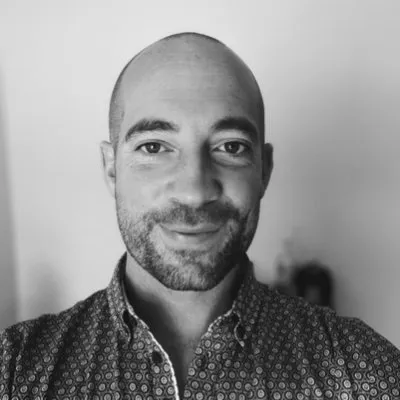
 Sign in with Google
Sign in with Google 